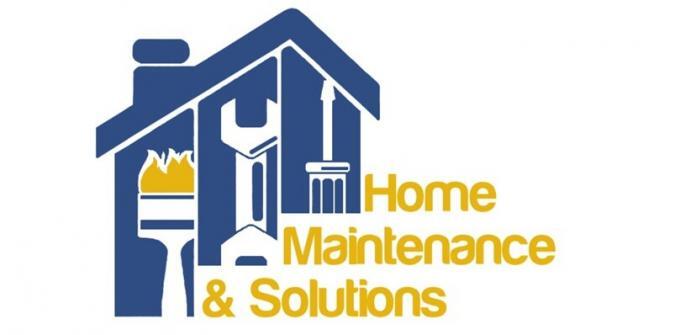Religions tend to offer solace and hope, besides an identity of some sort, to individuals around the world, thus bringing them together due to a common belief and way of doing things. The fact that these kinds of groups just matter and the way they help build social cohesion makes them worth significant attention in day-to-day activities. Being aware of typical grievances can lead to finding a way of support and a viable resolution.
1. Rising Restrictions on Worship Spaces
Many local authorities impose limits on gatherings, which simply reduces available times and venues for collective prayer and reflection. The permission processes involving complicated paperwork requirements or payments block the way to organizing services and events. Zoning controls imposed on neighbourhoods occasionally limit religious activities in residential zones and thus include small congregations deprived of familiar meeting places. A friendly conversation with local government offices can create possibilities for more understandable regulations and equal treatment. Providing templates for permit applications and offering guidance on regulatory language often strengthens the community’s ability to comply without undue difficulty. Long‑term efforts to simplify approval steps will sustain open, accessible spaces for worship.
2. Increasing Acts of Intimidation
Followers often encounter verbal warnings, property damage, or online harassment that shakes confidence in practicing faith openly. Recent studies on Christian persecution statistics show that many individuals face threats when gathering for spiritual rituals or study sessions. Organizing secure gathering methods and sharing safety tips simply helps participants manage potential risks. Establishing volunteer groups to monitor community spaces offers a visible presence that discourages hostile actions. Maintaining clear incident logs supports formal complaints when rights are violated.
3. Legal Challenges
In some regions, new legislation basically targets specific expressions of faith, effectively narrowing the range of permissible religious activities. Interpreting legal texts that affect worship routines demands expert advice to avoid unintended violations. Providing clear summaries of relevant laws and highlighting allowable practices within legal frameworks simply informs community leaders about safe options. Partnering with legal aid networks and faith‑friendly advocacy groups often secures access to expert support without prohibitive costs. Organizing workshops on rights awareness and guidance on responding to official inquiries helps maintain confidence and compliance. Active tracking of legislative developments ensures that communities remain prepared to adapt while preserving core practices.
4. Economic Barriers to Community Support
Budgetary constraints tend to restrict the capacity of a community to keep facilities, support outreach services, or provide charitable services. Personal fundraisers based on face-to-face fundraisers are not always successful, as they weaken once the turnout becomes low. Providing easy online giving options and coherent explanations on how to give money digitally tends to increase the reach and stabilize the revenue. Exchanging the templates of transparent financial reporting would create trust in members and third-party donors. Basic bookkeeping and planning the budget of volunteers just aid in putting the resources in effective places to operate. Provision of grants and collaborations with philanthropic entities commonly come with fresh funding sources that can maintain local projects as well as support programs.
5. Digital Censorship of Faith Expression
Online platforms sometimes remove or restrict content that discusses religious teachings, prayer requests, or community updates under broad moderation guidelines. Publishing clear community guidelines and creating multiple channels for sharing messages simply ensures that vital information remains accessible despite changing policies. Hosting services on self‑managed websites and distributing newsletters via email safeguards communication from abrupt platform restrictions. Monitoring platform policy updates and adapting content formats accordingly helps preserve digital presence and continues outreach efforts without interruption.
6. Social Isolation and Stigma
Individuals often feel cut off when facing negative attitudes or stereotypes simply tied to their beliefs, which reduces their willingness to attend group events or ask for support. Promoting open discussions about faith in public forums and partnering with interfaith coalitions simply fosters understanding and reduces prejudice. Organizing community service projects that include diverse participants usually demonstrates faith values through action rather than words alone. Sharing positive stories and achievements in community bulletins builds a sense of pride and counters misconceptions. Offering small‑group meetups focused on shared interests helps new members integrate comfortably and reinforces bonds among long‑standing participants. Steady efforts to bridge gaps will nurture broader acceptance.
7. Diminished Access to Faith Education
Many congregations struggle to offer programs that teach core beliefs, scriptures, or values when resources and volunteer time run short. Producing simple lesson outlines and instructional videos that cover fundamental topics helps volunteers deliver consistent sessions without extensive preparation. Creating online libraries of age‑appropriate materials and interactive activities simply engages learners at home and in small groups. Partnering with larger educational networks or regional training centers often brings expert input and curriculum support. Encouraging peer‑led study circles and mentoring relationships usually sustains momentum between formal classes. Regular updates to educational resources will reflect evolving community needs and ensure that spiritual learning remains vibrant and accessible.
Conclusion
Awareness of common realities facing faith communities fosters thoughtful responses that protect shared spaces, strengthen connections, and maintain essential services. Focused efforts on legal clarity, financial stability, and inclusive education help communities remain vibrant and supportive. Steady attention to evolving challenges and collective action will uphold faith traditions and community well‑being.
You may also like to read,
- 3 Tips for Outwardly Reflecting Your Inner Spirituality
- Top 10 Best Free WordPress Church Themes
- Believing In Yourself Is All You Need…Here’s Why







